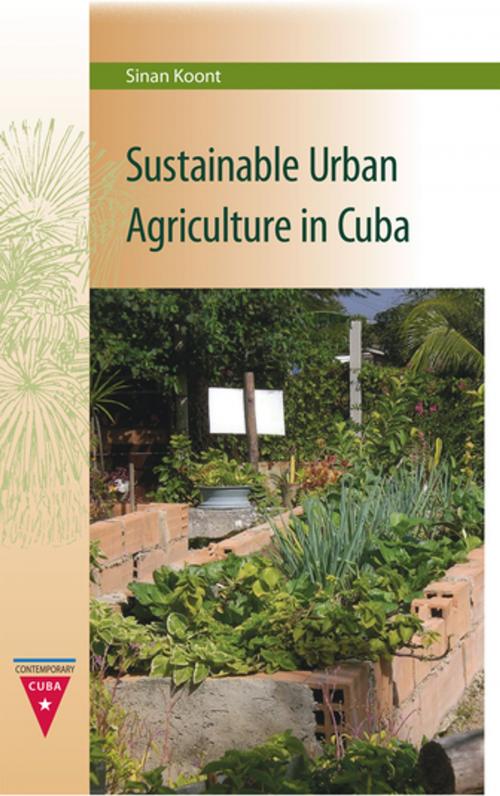Sustainable Urban Agriculture in Cuba
Fiction & Literature, Literary Theory & Criticism, Caribbean & West Indian, Nonfiction, Science & Nature, Technology, Agriculture & Animal Husbandry, Social & Cultural Studies, Social Science| Author: | Sinan Koont | ISBN: | 9780813059921 |
| Publisher: | University Press of Florida | Publication: | December 7, 2016 |
| Imprint: | University Press of Florida | Language: | English |
| Author: | Sinan Koont |
| ISBN: | 9780813059921 |
| Publisher: | University Press of Florida |
| Publication: | December 7, 2016 |
| Imprint: | University Press of Florida |
| Language: | English |
"Pushed by necessity but enabled by its existing social and educational policies, Cuba in the 1990s launched the most extensive program of urban sustainable agriculture in the world. This study is to date the only book-length investigation in either English or Spanish of this important national experiment in transforming the environmental, economic, and social nature of today's dominant system of producing food."--Al Campbell, University of Utah As large-scale industrial agriculture comes under increasing scrutiny because of its petroleum- and petrochemical-based input costs and environmentally objectionable consequences, increasing attention has been focused on sustainable, local, and agro-ecological techniques in food production. Cuba was forced by historical circumstances to be one of the pioneers in the massive application of these techniques. After the demise of the Soviet Union in the early 1990s, Cuba was left without access to external support needed to carry on with industrial agriculture. The economic crisis led the country to reconsider their former models of resource management. Cuba retooled its agricultural programs to focus on urban agriculture--sustainable, ecologically sound farming close to densely populated areas. Food now takes far less time to get to the people, who are now better nourished because they have easier access to whole foods. Moreover, urban farming has become a source of national pride--Cuba has one of the best urban agriculture programs in the world, with a thousand-fold increase in urban agricultural output since 1994. Sinan Koont has spent the last several years researching urban agriculture in Cuba, including field work at many sustainable farms on the island. He tells the story of why and how Cuba was able to turn to urban food production on a large scale with minimal use of chemicals, petroleum, and machinery, and of the successes it achieved--along with the continuing difficulties it still faces in reducing its need for food imports.
"Pushed by necessity but enabled by its existing social and educational policies, Cuba in the 1990s launched the most extensive program of urban sustainable agriculture in the world. This study is to date the only book-length investigation in either English or Spanish of this important national experiment in transforming the environmental, economic, and social nature of today's dominant system of producing food."--Al Campbell, University of Utah As large-scale industrial agriculture comes under increasing scrutiny because of its petroleum- and petrochemical-based input costs and environmentally objectionable consequences, increasing attention has been focused on sustainable, local, and agro-ecological techniques in food production. Cuba was forced by historical circumstances to be one of the pioneers in the massive application of these techniques. After the demise of the Soviet Union in the early 1990s, Cuba was left without access to external support needed to carry on with industrial agriculture. The economic crisis led the country to reconsider their former models of resource management. Cuba retooled its agricultural programs to focus on urban agriculture--sustainable, ecologically sound farming close to densely populated areas. Food now takes far less time to get to the people, who are now better nourished because they have easier access to whole foods. Moreover, urban farming has become a source of national pride--Cuba has one of the best urban agriculture programs in the world, with a thousand-fold increase in urban agricultural output since 1994. Sinan Koont has spent the last several years researching urban agriculture in Cuba, including field work at many sustainable farms on the island. He tells the story of why and how Cuba was able to turn to urban food production on a large scale with minimal use of chemicals, petroleum, and machinery, and of the successes it achieved--along with the continuing difficulties it still faces in reducing its need for food imports.















